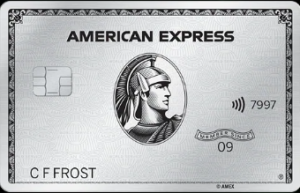Best Travel Credit Cards
About Himanshi
Himanshi Tandon is a versatile content writer and strategist, adept at delving into vivid genres. With expertise in the BFSI industry, she educates and enlightens readers through her insightful writing. Beyond her professional pursuits, Himanshi's creative spirit finds solace in the realm of poetry and verses.

At a Glance
Want to go on an adventure? Then you need the right Travel Credit Card. But you have to find the one that is going to serve you the best. From earning points and miles to exclusive benefits, these cards will make your travel dreams come true. Whether you’re a frequent flier with a thirst for new cultures or an occasional explorer seeking to maximize your vacations, our exploration of the best travel credit cards of 2024 aims to provide you with the insights needed to embark on your journeys with confidence.
In this article, you’ll learn:
Comparing the best credit cards for travel
| Credit Card | Travel Rewards | Welcome Offer |
|---|---|---|
| Chase Sapphire Preferred® Credit Card | 5x on travel, 3x on dining, 2x on other travel purchases | Substantial sign-up bonus after spending $4,000 in the first 3 months |
| Capital One Venture X Rewards Credit Card | 10x on hotels and rental cars through Capital One Travel, 5x on flights, 2x on all purchases | 75,000 miles with $4,000 spend in 3 months |
| Platinum Card from American Express | Extensive travel benefits; 5X points on flights & hotels | Earn 80,000 points |
| Chase Sapphire Reserve® Credit Card Apply now |
Premium travel perks; 10X points on hotels & car rentals | Earn 60,000 points |
| Bank of America® Travel Rewards Credit Card | No annual fee; Flexible redemption options | Earn 25,000 points |
| Citi Premier Card | 3X points on air travel, hotels, restaurants & supermarkets | Earn 60,000 points |
*Updated as of August 2023
A closer look at the top travel credit cards
Chase Sapphire Preferred® Card
Rewards rate: 5x on travel purchased through Chase Ultimate Rewards®, 3x on dining, 2x on all other travel purchases, plus more.
Intro APR: N/A
Regular APR: 21.24% – 28.24% variable
Signup bonus: Earn 60,000 bonus points after spending $4,000 on purchases in the first 3 months from account opening.
Our Verdict:
We recommend the Chase Sapphire Preferred® Card for travelers seeking an exceptional rewards rate and a generous sign-up bonus. With 5x rewards on travel, 3x on dining, and 2x on other travel purchases, it’s a top choice for earning valuable points. Additionally, the 25% boost in redemption value through Chase Ultimate Rewards® adds further appeal.
Pros:
- Generous rewards rate: 5x on travel, 3x on dining, and 2x on other travel purchases.
- High sign-up bonus: Earn 60,000 bonus points after spending $4,000 in the first 3 months.
- Boosted redemption value: Get 25% more value on travel redemptions through Chase Ultimate Rewards®.
- Travel benefits: Includes various travel insurances.
- Dining rewards: Earn 3x points on dining purchases.
Cons:
- Limited travel perks: No airport lounge access or travel credits.
- Less versatile redemption: Better suited for travel redemptions rather than other options.
Apply now: Chase Sapphire Preferred Credit Card
Capital One Venture X Rewards Credit Card
Rewards rate: 10 Miles per dollar on hotels and rental cars booked through Capital One Travel, 5 Miles per dollar on flights booked through Capital One Travel, 2 Miles per dollar on every purchase, every day.
Intro APR: N/A
Regular APR: 21.99% – 28.99% (Variable)
Signup bonus: 75,000 miles when you spend $4,000 in the first 3 months.
Our verdict:
The Capital One Venture X Rewards Credit Card is an excellent choice for those seeking premium travel rewards and luxury benefits. With its generous rewards rate, substantial welcome offer, and travel credits, it provides great value, making the $395 annual fee worthwhile.
Pros:
- Unlimited miles in all purchase categories
- Generous travel credits and premium perks
Cons:
- High spending requirement to earn the sign-up bonus.
- Requires excellent credit.
Apply now: Capital One Venture X Rewards Credit Card
Platinum Card From American Express
Rewards rate: Earn 5X Membership Rewards® Points for flights booked directly with airlines or with American Express Travel up to $500,000 on these purchases per calendar year. Earn 5X Membership Rewards® Points on prepaid hotels booked with American Express Travel.
Intro APR: Not specified.
Regular APR: See Pay Over Time APR (Variable).
Signup bonus: Earn 80,000 points after you spend $6,000 on purchases on the Card in your first 6 months of Card Membership.
Our Verdict:
The Platinum Card® from American Express is a top-notch choice for frequent travelers who value luxury benefits and extensive travel credits. With its robust rewards rate on flights and prepaid hotels, along with an impressive welcome offer, this card offers exceptional value. However, potential applicants should be aware of the high annual fee, which is one of the most expensive among travel cards. Overall, if you are a frequent traveler looking to elevate your travel experience, this card is worth considering.
Pros:
- 5X Membership Rewards® Points for flights booked directly with airlines or with American Express Travel.
- 5X Membership Rewards® Points on prepaid hotels booked with American Express Travel.
- Extensive travel benefits, including luxury lounge access and Hilton Honors gold status.
- No foreign transaction fees.
- Generous 80,000 points welcome offer.
Cons:
- Limited bonus categories beyond travel.
- High $695 annual fee, not ideal for infrequent travelers.
Apply now: American Express Platinum Card
Chase Sapphire Reserve® Credit Card
Rewards rate: 10x total points on hotels and car rentals when you purchase travel through Chase Ultimate Rewards®. 5x total points on flights through Chase Ultimate Rewards®. 3x points on other travel and dining. 1 point per $1 spent on all other purchases.
Intro APR: Not specified.
Regular APR: 22.24% – 29.24% variable.
Signup bonus: Earn 60,000 points after you spend $4,000 on purchases in the first 3 months from account opening. That’s $900 toward travel when you redeem through Chase Ultimate Rewards®.
Our verdict:
The Chase Sapphire Reserve® is a top-tier premium credit card with exceptional travel benefits and a lucrative sign-up bonus. Its 10x and 5x rewards rates on travel-related expenses make it ideal for frequent travellers. Additionally, the 50%-point value boost when redeeming through Chase Ultimate Rewards® adds value to the rewards. While the $550 annual fee is high, the card’s extensive travel perks and flexible redemption options make it worth considering for experienced travellers seeking luxury benefits.
Pros:
- Generous rewards rates on travel-related purchases (10x on hotels and car rentals, 5x on flights).
- Impressive sign-up bonus of 60,000 points after spending $4,000 in the first 3 months.
- $300 Annual Travel Credit for travel purchases each account anniversary year.
- 50% more-point value when redeeming for travel through Chase Ultimate Rewards®.
- Access to 1,300+ airport lounges worldwide through Priority Pass™ Select.
- 1:1 point transfer to leading airline and hotel loyalty programs.
Cons:
- Steep annual fee of $550.
- Required spend of $300 on travel annually before travel category rewards rates apply.
Apply now: Chase Sapphire Reserve®
Bank of America® Travel Rewards credit card
Rewards rate: 1.5X points per $1 spent on all purchases.
Intro APR: 0% Intro APR for 18 billing cycles for purchases, 0% Intro APR for 18 billing cycles for balance transfers made in the first 60 days.
Regular APR: 17.99% – 27.99% Variable APR on purchases and balance transfers
Signup bonus: 25,000 points when you spend $1,000 in the first 90 days.
Our verdict: The Bank of America® Travel Rewards credit card is an excellent choice for travellers seeking a no annual fee option. It offers a competitive rewards rate, a generous 0% intro APR offer on purchases and balance transfers, and a solid sign-up bonus. Its flexible redemption options make it suitable for various travel expenses.
Pros:
- Big sign-up bonus
- No annual fee
- Competitive rewards rate on all purchases
- Great 0% intro APR offer on purchases and balance transfers
Cons:
- No specific bonus categories
- Limited ways to use points.
Apply now: Bank of America® Travel Rewards credit card
Citi Premier® Card
Rewards rate: 3X points per $1 spent at Gas Stations, Air Travel, Other Hotels, Restaurants, and Supermarkets; 1X point per $1 spent on all other purchases.
Intro APR: N/A
Regular APR: 20.99% – 28.99% (Variable)
Signup bonus: Earn 60,000 points after spending $4,000 in the first 3 months; limited time offer of 10X points per $1 spent on hotel, car rentals, and attractions booked on the Citi Travel portal through June 30, 2024.
Our verdict: The Citi Premier® Card is an excellent choice for frequent travelers who seek a versatile rewards card. It offers a fulfilling rewards rate on various categories, a valuable signup bonus, and premium credit card perks for a reasonable annual fee.
Pros:
- Generous rewards on travel, dining, and everyday purchases
- Valuable signup bonus and limited-time offer
- No foreign transaction fees.
Cons:
- Limited travel transfer partners
- Travel protections not offered.
Apply now: Citi Premier® Card
Types of travel credit cards
Travel credit cards are specialized cards that offer rewards, perks, and benefits for travelers. There are various types of travel credit cards, each tailored to different aspects of travel, catering to different travel preferences and needs. These include:
1. General travel cards
These credit cards offer rewards and benefits for a wide range of travel-related expenses such as flights, hotels, car rentals, cruises, and other travel purchases. Cardholders can earn points or miles for every dollar spent, which can later be redeemed for various travel-related expenses. Some of these cards also come with additional perks like travel insurance, access to airport lounges, and no foreign transaction fees.
2. Airline travel cards
These credit cards are affiliated with specific airlines and are designed to provide rewards and benefits primarily for air travel expenses. Users can earn miles or points that are redeemable for flights with the airline or its partner carriers. Additionally, airline credit cards often offer perks like priority boarding, complimentary checked bags, and discounts on in-flight purchases.
Related: Airline Vs. Travel Credit Cards
3. Hotel credit cards
Hotel credit cards are co-branded with specific hotel chains and cater to earning rewards and benefits for hotel-related expenses. Cardholders can accumulate points or free nights based on their stays at the affiliated hotel chain. Some hotel credit cards may also grant elite status in the hotel’s loyalty program, providing additional advantages such as room upgrades and late checkout.
Compare: Best Hotel Credit Cards
How to choose the best travel credit card for you
Follow these steps –
- Consider your travel habits and preferences: Choose a card that aligns with how you travel, whether it’s airline-specific or more flexible for various expenses.
- Evaluate rewards structure: Look for travel credit cards that offer rewards, like points or miles, that match your spending patterns and travel needs.
- Check sign-up bonuses: Opt for cards with attractive sign-up bonuses, providing extra incentives when you meet certain spending requirements.
- Assess fees and APR: Prioritize cards with no foreign transaction fees and reasonable annual percentage rates (APRs) to save on international expenses.
- Explore travel benefits: Seek cards with additional perks such as travel insurance, airport lounge access, and concierge services to enhance your journeys.
- Ensure practical redemption options: Choose a card that allows you to easily redeem your rewards for travel expenses or other valuable options.
- Check credit score requirements: Confirm that you meet the credit score criteria for the card you are interested in.
- Consider ongoing annual benefits: Look for cards offering annual travel credits, free hotel nights, or companion passes to maximize value.
- Research customer support: Select a card from a reputable issuer known for excellent customer service, essential during travel emergencies.
- Complement existing cards: Opt for a card that complements your current credit cards, allowing you to maximize rewards across different spending categories.
Learn more: How to Choose the Best Travel Credit Card
What credit score is needed for a travel credit card?
The best credit cards for traveling usually require a good to excellent credit score, typically around 670 or higher for good credit and 720 or above for excellent credit. However, eligibility criteria may vary depending on the specific card and issuer. It’s essential to research and compare different travel credit cards to find the one that best suits your needs and rewards your travel expenses effectively.
How to make the most out of your travel credit card
To make the most of your top travel credit cards:
- Choose a card that suits your travel preferences.
- Earn sign-up bonuses by meeting spending requirements.
- Maximize rewards on travel expenses and bonus categories.
- Utilize travel partners for added benefits.
- Redeem rewards for high-value travel expenses.
- Use travel perks like insurance and lounge access.
- Avoid foreign transaction fees.
- Pay your balance in full each month.
- Stay updated on promotions and changes.
- Plan to optimize your travel and rewards.
Are travel credit cards worth it?
Certainly! Travel credit cards can be a worthwhile choice for frequent travelers or those planning future trips. These cards offer rewards, benefits, and savings on travel expenses, as cardholders earn points or miles for their purchases. With options to redeem points for flights, hotels, and more, they can unlock significant value. Moreover, travel credit cards often provide added perks like travel insurance, airport lounge access, and waived foreign transaction fees. However, the card’s worthiness hinges on the individual’s travel habits and ability to maximize the rewards and benefits offered by the card.
Learn more: Are Travel Credit Cards Worth It?
Methodology
The methodology employed to ascertain the value of a point or mile on travel credit cards entails a comprehensive analysis of several key factors. These factors encompass evaluating the cost of redeeming points for travel-related expenses, such as flights and accommodations. Flexibility in redemption options, availability of rewards, and potential cost savings relative to cash purchases are also considered. Furthermore, the methodology incorporates an examination of promotional offers, bonus incentives, and supplementary perks that augment the overall value of rewards. Through a meticulous assessment of these elements, an approximate average value per point or mile is derived, empowering cardholders to make well-informed decisions regarding their travel rewards redemptions.
The product information provided here is based on research conducted up to a specific date and may have changed. For the latest and most accurate information, we recommend you to visit the respective card’s website before proceeding.
Travel Credit Cards
Expert Tips From Our Panel
- When evaluating travel credit cards, what factors should one consider beyond the obvious rewards and annual fees?
- What are some lesser-known travel benefits that certain credit cards offer, such as priority boarding, travel insurance, or airport lounge access?
- Who is best suited for a travel rewards credit card and how to determine if travel credit card is right for them?
Answer to these questions by our experts
Thomas J. Brock answer:
Obvious factors to consider when evaluating any type of credit card include the annual percentage rate, the annual fees and the extent of the rewards, which includes new cardholder welcome bonuses. For travel credit cards, less obvious factors include valuable perks, such as travel insurance, priority boarding, airport lounge access and free access to subscription-based services, including exclusive lodging, dining and entertainment groups.
Brett Holzhauer answer:
With a travel credit card, consumers should be looking at the total value extraction value. This means the dollar value attached to using each benefit of the card minus any fees you may pay along the way. As an example, let’s say a credit card will earn you $700 in reward for the welcome offer. And let’s say there is a $10/month credit towards dining you use each month. That gives you $820 in value. And let’s say there is a $95 annual fee. This means that in the first year, your total value extraction is $725. Every card has a TVE that is personal to you and your needs, so be sure to find those numbers as you’re shopping for cards.
Zina Kumock answer:
The most important thing to consider is you’ll earn rewards that you can actually redeem for relevant travel purchases. For example, if you live near a Delta hub but your card earns rewards for United, then you’ll have a harder time redeeming your hard-earned miles. Make sure the card aligns with your personal needs. Also, check to see if the card charges a foreign transaction fee. If you’re going abroad, you should always use a card that waives foreign transaction fees. Foreign transaction fees can cost you hundreds of dollars depending on your total purchases. Plus, it’s fairly easy to find a travel card that waives these fees.
Thomas J. Brock answer:
For travel credit cards, less obvious factors include valuable perks, such as travel insurance, priority boarding, airport lounge access and free access to subscription-based services, including exclusive lodging, dining and entertainment groups.
Brett Holzhauer answer:
The most important benefit offered by travel credit cards is the travel insurance coverage. We all know that travel can go awry from time to time, and not only can it potentially ruin your fun, it can also come with financial ramifications. But by booking your travels with a credit card with travel insurance, your flights, hotels and other potential bookings could be covered.
Zina Kumock answer:
Some travel cards provide a free checked bag, which can help you save money if you frequently travel and check a bag. Checked bag fees usually cost about $30 per flight, so you can pay about $60 for each round-trip flight. Travel cards that provide free airport lounge access can also help consumers save money because those lounges often have free snacks and drinks, so you don’t have to buy an overpriced sandwich from an airprot kiosk. Another important perk is that travel cards often provide free travel insurance and reimbursement in case something goes wrong. This can often help you recoup funds if your flight gets seriously delayed or canceled.
Thomas J. Brock answer:
A travel rewards credit card is best for people that travel frequently and/or embark on a few ultra-long-distance trips per year. For these individuals, travel rewards cards can yield economic benefits that greatly exceed those achievable via standard “cash-back rewards” credit cards.
Brett Holzhauer answer:
Consumers with solid credit and at least occasionally travel (1-2 times per year) could be a great fit for a travel credit card. But not all travel credit cards are created equal, so it’s just as important to analyze which credit card fits your travel needs and wants, along with your spending habits, before hitting the apply button.
Zina Kumock answer:
Not everyone needs a specific travel rewards credit card. If you rarely travel outside the country, then a basic rewards card may provide enough perks for you. However, if you can find a travel card that doesn’t come with an annual fee, then it may be worth opening. But if you’re someone who travels several times a year, then you may want to sign up for a travel card. Having a dedicated travel card can help you save extra and have a better travel exerpeicen overall. You should also figure out what kind of travel card you want. There are some basic travel cards and others that are more sophisticated. If you only travel domestically, then a simple travel card may be enough. But if you go abroad at least once a year, then a higher-end card may be the best option.
All Expert Tips from
- When evaluating travel credit cards, what factors should one consider beyond the obvious rewards and annual fees?
- What are some lesser-known travel benefits that certain credit cards offer, such as priority boarding, travel insurance, or airport lounge access?
- Who is best suited for a travel rewards credit card and how to determine if travel credit card is right for them?
Obvious factors to consider when evaluating any type of credit card include the annual percentage rate, the annual fees and the extent of the rewards, which includes new cardholder welcome bonuses. For travel credit cards, less obvious factors include valuable perks, such as travel insurance, priority boarding, airport lounge access and free access to subscription-based services, including exclusive lodging, dining and entertainment groups.
With a travel credit card, consumers should be looking at the total value extraction value. This means the dollar value attached to using each benefit of the card minus any fees you may pay along the way. As an example, let’s say a credit card will earn you $700 in reward for the welcome offer. And let’s say there is a $10/month credit towards dining you use each month. That gives you $820 in value. And let’s say there is a $95 annual fee. This means that in the first year, your total value extraction is $725. Every card has a TVE that is personal to you and your needs, so be sure to find those numbers as you’re shopping for cards.
The most important thing to consider is you’ll earn rewards that you can actually redeem for relevant travel purchases. For example, if you live near a Delta hub but your card earns rewards for United, then you’ll have a harder time redeeming your hard-earned miles. Make sure the card aligns with your personal needs. Also, check to see if the card charges a foreign transaction fee. If you’re going abroad, you should always use a card that waives foreign transaction fees. Foreign transaction fees can cost you hundreds of dollars depending on your total purchases. Plus, it’s fairly easy to find a travel card that waives these fees.
For travel credit cards, less obvious factors include valuable perks, such as travel insurance, priority boarding, airport lounge access and free access to subscription-based services, including exclusive lodging, dining and entertainment groups.
The most important benefit offered by travel credit cards is the travel insurance coverage. We all know that travel can go awry from time to time, and not only can it potentially ruin your fun, it can also come with financial ramifications. But by booking your travels with a credit card with travel insurance, your flights, hotels and other potential bookings could be covered.
Some travel cards provide a free checked bag, which can help you save money if you frequently travel and check a bag. Checked bag fees usually cost about $30 per flight, so you can pay about $60 for each round-trip flight. Travel cards that provide free airport lounge access can also help consumers save money because those lounges often have free snacks and drinks, so you don’t have to buy an overpriced sandwich from an airprot kiosk. Another important perk is that travel cards often provide free travel insurance and reimbursement in case something goes wrong. This can often help you recoup funds if your flight gets seriously delayed or canceled.
A travel rewards credit card is best for people that travel frequently and/or embark on a few ultra-long-distance trips per year. For these individuals, travel rewards cards can yield economic benefits that greatly exceed those achievable via standard “cash-back rewards” credit cards.
Consumers with solid credit and at least occasionally travel (1-2 times per year) could be a great fit for a travel credit card. But not all travel credit cards are created equal, so it’s just as important to analyze which credit card fits your travel needs and wants, along with your spending habits, before hitting the apply button.
Not everyone needs a specific travel rewards credit card. If you rarely travel outside the country, then a basic rewards card may provide enough perks for you. However, if you can find a travel card that doesn’t come with an annual fee, then it may be worth opening. But if you’re someone who travels several times a year, then you may want to sign up for a travel card. Having a dedicated travel card can help you save extra and have a better travel exerpeicen overall. You should also figure out what kind of travel card you want. There are some basic travel cards and others that are more sophisticated. If you only travel domestically, then a simple travel card may be enough. But if you go abroad at least once a year, then a higher-end card may be the best option.
Hide all tips
FAQs
Traveling for free with credit cards is possible through strategic use of rewards points and miles. Choose travel credit cards that offer generous sign-up bonuses and rewards for travel-related expenses. Maximize spending on bonus categories and utilize travel partners to earn more points. Redeem points for high-value travel expenses like flights and hotels. By paying off your balance in full each month to avoid interest charges, you can make the most of your rewards and enjoy nearly free travel experiences.
When looking for the best credit card with travel insurance you want to seek out cards that offer comprehensive travel insurance coverage, including trip cancellation/interruption, baggage delay/loss, medical emergency coverage, and rental car insurance. Understand what is not covered by the insurance. Certain pre-existing conditions or risky activities might not be covered.
Also, consider your travel habits. If you frequently travel internationally, look for a card that offers international travel insurance. If you primarily travel domestically, ensure that the card’s coverage applies to your needs. Check the annual fee and any other associated fees with the credit card. Be sure to make sure the benefits and coverage outweigh the costs. Read reviews or research the card issuer’s reputation for processing claims. A smooth and straightforward claims process can be crucial when you’re in need. Also keep in mind that some credit cards offer additional travel-related perks like airport lounge access, TSA PreCheck/Global Entry fee reimbursement, and concierge services. And remember, if you have other insurance coverage (e.g., through your employer or personal insurance policies), ensure that the credit card’s coverage complements rather than duplicates what you already have.
The best credit card for international travel should ideally have no foreign transaction fees, offer travel insurance, and provide rewards for global expenses. Consider cards like the Chase Sapphire Preferred® Card or the Capital One Venture Rewards Credit Card, which offer these features and are widely accepted internationally, making them suitable companions for your journeys abroad.
The value of a point or mile on travel credit cards varies but is typically around 1 to 2 cents. However, this can fluctuate based on how you redeem them, with higher value possible for premium flights or peak travel times. Research your card’s rewards program to understand the best redemption options.
The number of miles needed for a free flight varies depending on the airline, destination, and the type of ticket (economy, business, first class). On average, you may need around 25,000 to 50,000 miles for a round-trip domestic economy flight. International flights or premium class tickets may require more miles, sometimes exceeding 100,000. Keep an eye on airline loyalty programs and promotions to get the most value from your miles.
Travel miles and points can have expiration policies depending on the credit card issuer or loyalty program. Some cards have no expiration, while others may require activity within a certain timeframe to keep the rewards active. Be aware of your card’s policy and use your rewards regularly or choose a card with no expiration if you plan to accumulate points over time.
Learn more: Do Credit Card Rewards Expire?















